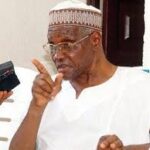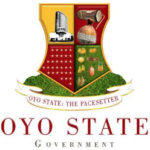It just occurred to me that the presidential candidates from the primaries of the two leading parties, the All Progressives Congress (APC) and the Peoples Democratic Party (PDP), Bola Ahmed Tinubu and Atiku Abubakar, respectively, would arguably be the most formidable aspirants for the post since this journey began in 1999. It is no wonder that watching the processes leading to the primaries kept the whole nation mesmerised and glued to the media for all the days the drama was unfolding.
The PDP had the first go at conducting its convention. On the day it opened, we were shocked at the withdrawal of two high-profile contestants. They were, as I wrote in my last week’s piece ‘so filled with horror at how monetised the primary elections were that they elected to abandon their ambition. In fact, one of them was so pissed off with the unsavoury goings-on that he resigned from the party entirely. That aside, the convention turned out to be as exciting as expected reaching a crescendo when Aminu Tambuwal, Governor of Sokoto State and a leading contestant, unexpectedly stepped down for Atiku Abubakar’s candidacy. That must have helped to give the edge to Atiku to beat his closest rival Governor Nyesom Wike of Rivers State by over 100 votes of the total delegates’ votes of 767.
Atiku’s victory must have sent a deep sigh of relief to many PDP apparatchiks that this old hand was back on the stump. Atiku has been angling for the presidency for as long as many can remember. The most experienced politician among all the PDP aspiring presidential candidates, Atiku is reputed to have won elections as governor in his Adamawa State in 1999 before becoming a running mate to Olusegun Obasanjo, a ticket that won the presidency that same year. The same ticket won again in 2003 for a second term.
Atiku is said to have made his foray into politics way back in the Social Democratic Party (SDP) primaries for the 1993 presidential elections that produced MKO Abiola as the winner. In that primary election held in Jos, Atiku made a strong showing by coming third with 2066 votes to Kingibe’s 3225 votes placed second and Abiola’s winning votes of 3617. For strategic reasons and at the behest of his group leader, Shehu Musa Yar’Adua, Atiku stepped down for Abiola in the following round of voting. Abiola won the primaries and was the presumed winner of the elections that Babangida’s military government truncated. Atiku went on to run as a presidential candidate, times and again, in the 3rd Republic.
The APC primaries showcased a lot of their own drama too. It was far less well organised than the PDP’s show with problems of keeping to time and handling an unwieldy boisterous crowd. But this was to be expected, for APC is a bigger party and has far too many government officials who gave scant attention to keeping to time. It had its extraordinary moments too when contestants appeared on the podium to step down for Tinubu. Earlier in the day, an endorsement by 12 northern governors to back a southern candidate had pulled the rug from the feet of the northern candidates. This added to the endorsements by other southern candidates and their stepping down for him ensured a smooth victory for Tinubu.
Just like Atiku, Tinubu has been a recurring decimal in the Nigerian political scenery since the 3rd Republic. He ingrained himself in the political firmament by winning a seat in the Senate representing Lagos West in that watershed election of 1993. They were both close associates of the political godfather of the time, Shehu Musa Yar’Adua, who would tragically die subsequently in a Port Harcourt prison, held on a trumped-up charge by the Abacha military regime. Even though they went their different ways in 1999, Atiku in PDP as vice-president to President Obasanjo and Tinubu in the Alliance for Democracy (AD) as governor of Lagos State, they remained very close. Many of us who worked in the Presidential Villa at the time can attest to that.
The relationship became even closer in the second term of 2003-2007 when the ties between President Obasanjo and his deputy became fractured. At the same time, Governor Tinubu had his Lagos State government severely persecuted by President Obasanjo. Atiku and Tinubu had common grouses and this cemented their relationship leading up to 2007 when Atiku stood as a presidential candidate in Action Congress (AC), a party created and nurtured by Tinubu. Atiku did not win the election, and he would later return to the PDP, though they were later reunited with Tinubu in the formation of the APC in 2014. Atiku left APC in 2017 and again returned to PDP. He is now their candidate and is poised to stand against his long-time friend and associate.
The battle is thus set for a titanic struggle. Both Atiku and Tinubu are doughty fighters who would never let go of a struggle. They both were fixated on the presidency and nothing could ever divert their attention. They both are endowed with the resources and reach across the country to run their campaigns. Above all, they both have been the most media-savvy of all the candidates we have had since 1999.
We are truly set for an exciting campaign year ahead.
 Join Daily Trust WhatsApp Community For Quick Access To News and Happenings Around You.
Join Daily Trust WhatsApp Community For Quick Access To News and Happenings Around You.


